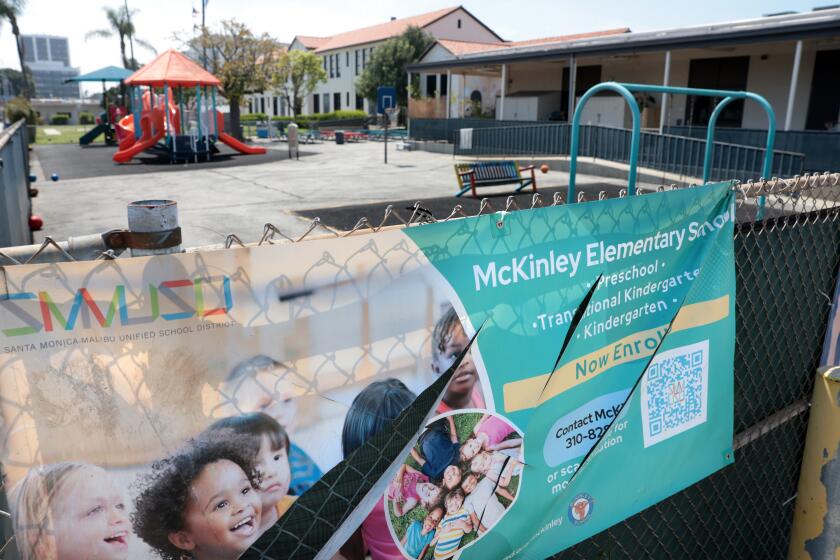UC regents not eager to take on California’s prison healthcare
University of California leaders made clear Thursday that they were not in a rush to embrace a controversial proposal for UC to provide healthcare for state prison inmates, with an emphasis on connecting doctors and patients remotely over the Internet.
The UC regents were scheduled to discuss the issue at a meeting in San Francisco but delayed it for at least two months, deciding to form a committee to study the plan and other options. “This is a very complicated issue, and we are going to have to spend a great deal of time to determine how and if the university is going to get involved,” regents Chairman Russell S. Gould said at the meeting.
Gov. Arnold Schwarzenegger has proposed having UC, with its prestigious medical schools, manage healthcare for prison inmates; a recent report by a consultant estimated that the change could save the state $12 billion over a decade. Besides the expansion of telemedicine, the plan calls for a special hospital for chronically ill inmates, reducing the need for overtime pay for prison guards for hospitalized patients.
The proposal faces opposition from the guards union and prison doctors. It would need approval from the federal receiver who has overseen prison healthcare since 2006 in a court-ordered effort to improve care.
John D. Stobo, UC’s senior vice president for health sciences and services, said Thursday that university leaders want to help the state but that UC’s ultimate involvement may be less sweeping than outlined in the consultant’s study, with perhaps an advisory, not managerial, role.
Some regents expressed concern about taking on new financial and legal risks, especially after having voted in November to partner with Los Angeles County to reopen the troubled Martin Luther King Jr. hospital in Willowbrook.
Stuart Bussey, president of the Union of American Physicians and Dentists, which represents more than 800 prison employees, criticized the governor’s idea, warning the regents that the telemedicine plan would be bad for inmates and that UC would be entangled in many prison problems.
In other business, the regents appointed Lawrence H. Pitts as provost and executive vice president for academic affairs, a second-in-command position he has held in an interim capacity since February 2009.
A professor emeritus of neurosurgery at UC San Francisco and former chairman of the systemwide faculty senate, Pitts will keep his $350,000-a-year salary, although that is temporarily reduced to $315,000 under the university’s furlough program.
More to Read
Start your day right
Sign up for Essential California for news, features and recommendations from the L.A. Times and beyond in your inbox six days a week.
You may occasionally receive promotional content from the Los Angeles Times.







